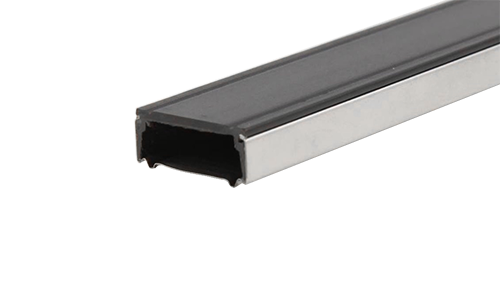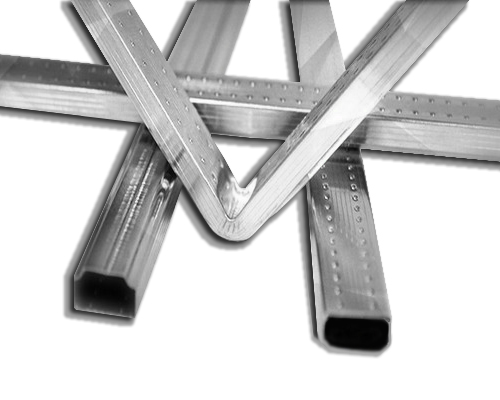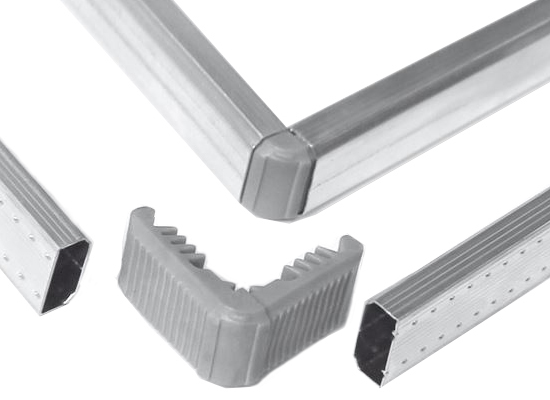








Framex – quality in any circumstances

The optimal solution for manufacturing a durable and perfect double-glazed unit.
Combining the strength of stainless steel and the energy efficiency of polycarbonate significantly reduces the cooling of the edge zone of the double-glazed unit, preventing the formation of condensation and mold around the window.
The excellent mechanical properties of the combined frame allow for the realization of any geometric shapes.
The size grid of frames by width:










Designed for factories equipped with manual or automatic bending equipment.
They are characterized by increased mechanical strength and an elastic aluminum alloy.
The main advantage of a flexible spacer frame is that it has only one connection point, which is sealed at the end of the assembly of the insulating glass unit.
The size grid of frames by width:













Despite their name, these frames are not elastic. They are used in manual production. Before assembling the insulating glass unit, they are cut into segments of a specific size and then connected using plastic corners. The line of contact between the frame and the glass is carefully filled with a non-hardening sealant (butyl).
Special attention is given to the properties of those surfaces of the frames that form the connection with sealants. The best adhesion is achieved through the application of the latest technologies for degreasing surfaces during the manufacturing process. When selecting spacer frames for insulating glass units, it should be considered that frames made of aluminum, regardless of the manufacturer, have thermal conductivity approximately 25-30 times greater than those made from plastic, or a combination of polycarbonate and stainless steel.
Combined with high humidity and insufficient supply and exhaust ventilation in the room, this leads to the freezing of the window and the formation of a cold zone within a 1-meter radius from it, condensation formation, and, consequently, dampness and mold in the window area. To avoid these consequences, it is recommended to use only warm spacer frames from verified manufacturers for residential spaces.
The size grid of frames by width:









Thermal conductivity of the material, W/m*K;
Linear coefficient of thermal conductivity of the insulating glass unit in the edge zone, W/m*K
Heat transfer coefficient of a window made from PVC profile, W/m²*K;
Thermal resistance of the insulating glass unit, m² K/W;
0,038
0,77
Aluminum flexible spacer frame
Aluminium – 160
0,075
1,2
0,68
Aluminium – 160
0,075
1,2
0,68
Thermal conductivity of the material, W/m*K;
Linear coefficient of thermal conductivity of the insulating glass unit in the edge zone, W/m*K
0,038
Heat transfer coefficient of a window made from PVC profile, W/m²*K;
Thermal resistance of the insulating glass unit, m² K/W;
0,77
Thermal conductivity of the material, W/m*K;
Aluminium – 160
Linear coefficient of thermal conductivity of the insulating glass unit in the edge zone, W/m*K
0,075
Heat transfer coefficient of a window made from PVC profile, W/m²*K;
1,2
Thermal resistance of the insulating glass unit, m² K/W;
0,68
Thermal conductivity of the material, W/m*K;
Aluminium – 160
Linear coefficient of thermal conductivity of the insulating glass unit in the edge zone, W/m*K
0,075
Heat transfer coefficient of a window made from PVC profile, W/m²*K;
1,2
Thermal resistance of the insulating glass unit, m² K/W;
0,68
Our specialist will contact you shortly and answer all questions regarding Framex.
Please enter your username or email address. You will receive a link to create a new password via email.